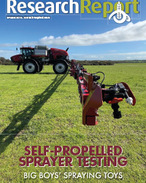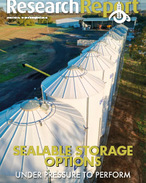This article is 4 years old. Images might not display.
Four cropping and grazing farms in the Wheatbelt have signed up as participants in the two-year project which is aimed at building a connected network of livestock corridors for dung beetles.
Small dung beetle populations are scattered across WA but with an increase in cropping and widespread de-stocking across the Wheatbelt, these populations are under pressure.
There are enormous benefits to increasing the number and distribution of beetles throughout the region, as explained by project manager, Felicity Gilbert.
"When you mention dung beetles, many people immediately think of fly and parasite control, however their benefits extend far beyond this," Gilbert said.
"Dung beetles are one of nature's most efficient recyclers. Their tunnelling activities have significant positive impacts to soil health, pasture production and can also reduce water pollution.
"In an area like the Wheatbelt, with its nutrient-poor sandy soils, this project offers an opportunity to explore more biological ways of improving soil health."
The project forms part of the national "Beetles With Benefits" research program which is uncovering valuable dung beetle insights in other parts of the country.
The Wheatbelt NRM is now looking to expand into the next phase of the project which includes a trapping and monitoring process to enable species identification.
Following this phase, the project hopes to establish local "beetle nurseries" to increase longer-term availability across the region.
Anyone interested in being part of the trapping and monitoring phase should get in contact with the project manager, Felicity Gilbert via the Wheatbelt NRM website:
http://wheatbeltnrm.org.au/























